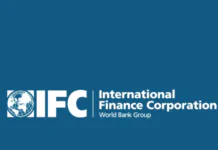Good Afternoon,
BRICS Announces Right To Uphold Trading in Local Currencies
Brazil’s finance minister says BRICS has every right to trade in local currencies, despite U.S. pressure.
Haddad Pushes Back Against Dollar Weaponization
Brazil’s Finance Minister Fernando Haddad openly criticized Washington’s reliance on the U.S. dollar as a tool of influence. In an interview with UOL, Haddad said BRICS countries are justified in conducting trade using their own currencies, despite pressure from the Trump administration.
“That doesn’t make sense. If we can make our transactions cheaper, why would we make them more expensive?” Haddad asked.
He stressed that the United States has no authority to prevent other nations from choosing settlement methods that strengthen their economies.
How Local Currencies Support Trade
According to Haddad, trading in local currencies provides clear economic benefits:
- Lower foreign exchange costs compared to the U.S. dollar
- Support for domestic currencies in global forex markets
- Reinforcement of GDP through cheaper import-export settlements
For businesses, this approach can mean substantial savings in cross-border trade, as exchange rate spreads are minimized.
The U.S. Cannot Stop BRICS Shift
Haddad warned that Washington’s own policies risk undermining the dollar’s status. He pointed to Trump’s tariffs and trade wars as examples of costly mistakes that weaken global confidence.
“Another thing is this issue of turning the dollar into a weapon of war, like what happened against Russia. So, this is what is weakening it,” he said.
Trump’s decision to impose tariffs on BRICS members for reducing reliance on the dollar has further accelerated their shift toward alternative systems.
A Multipolar Financial World Emerging
BRICS members are exploring frameworks to anchor cross-border trade around a basket of local currencies rather than the U.S. dollar.
The U.S. dollar will likely remain a reserve currency, Haddad admitted, but its exclusive status is under threat. Unless Washington reverses course, BRICS intends to move forward with a more multipolar monetary order.
Why This Matters
BRICS’ insistence on local currency trade is more than symbolic—it signals a deeper break from U.S. financial dominance. By lowering costs and boosting their own economies, BRICS nations are laying the foundation for a world where the dollar is no longer the single pillar of global trade.
@ Newshounds News™
Source: Watcher Guru
~~~~~~~~~
4 Industries To Be Hit if BRICS Drops the Dollar
If BRICS abandons the U.S. dollar for trade, key American industries could face severe disruption.
A Risk to the American Economy
If BRICS nations follow through on plans to use local currencies instead of the U.S. dollar, the move could send shockwaves through the American economy.
The U.S. has long relied on global demand for dollars to support its financial system. Without it, inflation could rise, exports could weaken, and jobs would be at risk. From Wall Street to Washington, four industries in particular stand to lose the most.
1. Stock Market & Wall Street
Global capital flows are tied to the dollar’s dominance. If demand weakens, U.S. stock markets could suffer steep declines, with volatility spreading across financial institutions and investor portfolios.
2. Export & Manufacturing Industry
American manufacturers depend on dollar-based trade for cost efficiency. A shift to local currencies would erode competitive pricing, making U.S. exports more expensive and less attractive abroad.
3. Digital Payments & Technology
Silicon Valley’s payment platforms and fintech giants are built around the dollar’s global role. Reduced international reliance on the greenback could hurt transaction volumes, valuations, and growth opportunities in the sector.
4. U.S. Government & Debt Markets
Perhaps the most dangerous impact would be on Washington itself. The U.S. Treasury depends on dollar demand to finance its debt. If BRICS reduces reliance, borrowing costs could rise sharply, straining federal budgets and long-term stability.
The Domino Effect
These industries are deeply interconnected. Market losses could ripple into the job market, with corporations cutting staff to manage falling revenues. Inflation would erode household savings, while essentials like food and fuel could see rapid price hikes.
Why This Matters
If BRICS ultimately abandons the dollar, the U.S. would face more than a financial setback—it could trigger a broad economic downturn. For now, the dollar remains dominant, but the warning signs are clear: a multipolar world threatens the very foundation of America’s economic strength.
@ Newshounds News™
Source: Watcher Guru
~~~~~~~~~
Seeds of Wisdom Team RV Currency Facts Youtube and Rumble
Newshound’s News Telegram Room Link
Follow the Roadmap
Follow the Timeline
Seeds of Wisdom Team™ Website






